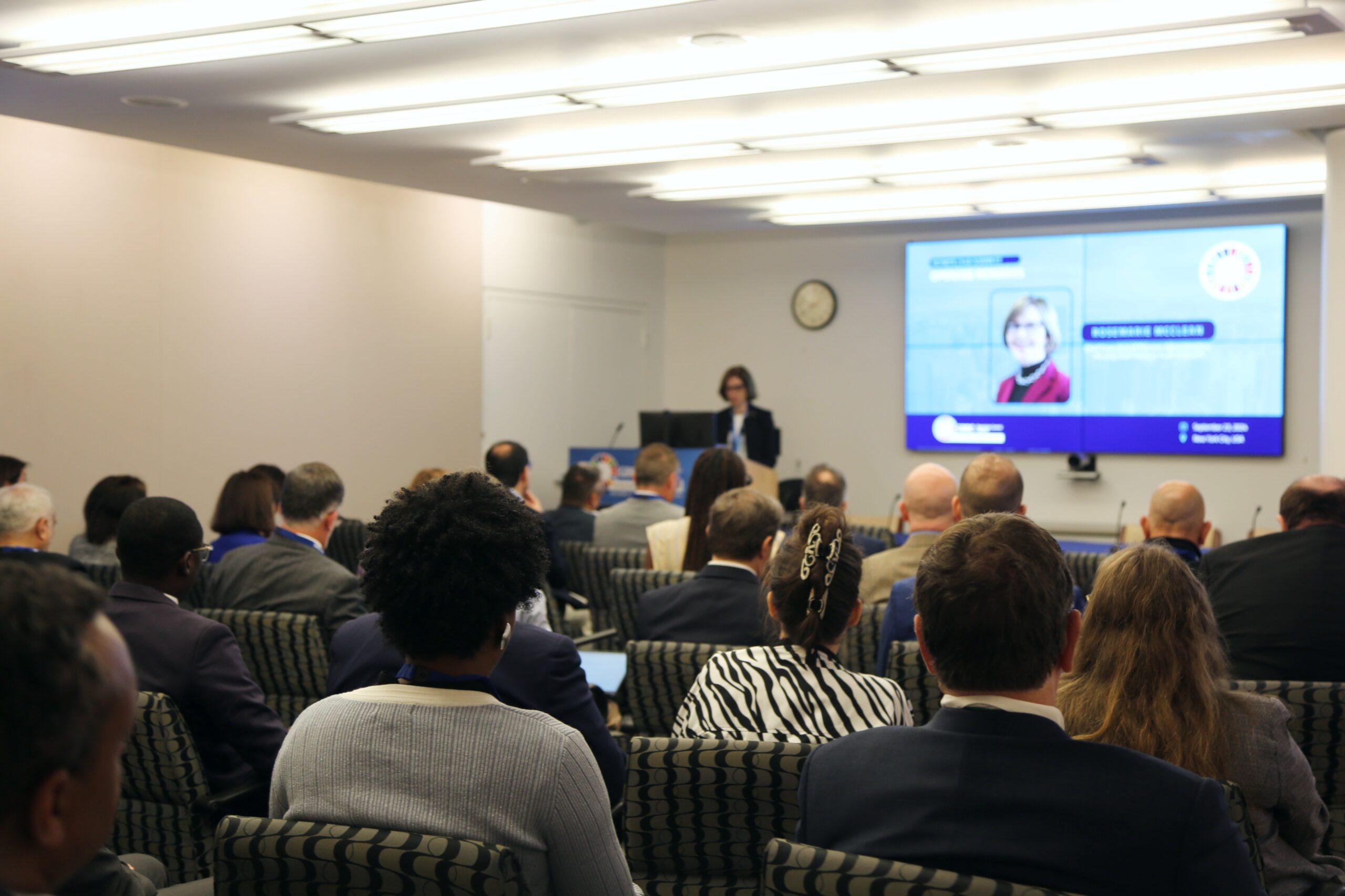On 23 September, Global Blockchain Business Council (GBBC) partnered with the UN Joint Staff Pension Fund (UNJSPF) to bring together leaders and experts to discuss the adoption of “people-centered” blockchain solutions.
The GBBC convened its seventh annual Blockchain Central during the United Nations General Assembly in the UNJSPF office in New York City.
UNJSPF Chief Executive of Pension Administration, Rosemarie McClean welcomed the participants and highlighted the Fund’s journey in adopting and implementing emerging technologies for social good, and the longstanding partnership with GBBC.
UNJSPF Chief Information Officer, Dino Dell'Accio presented the UNJSPF Digital Identity Solution, which received the UN Secretary-General Award for Innovation and Sustainability. He emphasized the need to continue investing in the development of criteria and best practices to provide assurance on the trustworthiness and reliability of solutions based on emerging technologies (i.e., blockchain, artificial intelligence (AI), biometrics).
Human-centered technology
This year, GBBC’s Blockchain Central UNGA mobilized thought leaders and changemakers across blockchain, including regulators, technology experts, and business leaders to examine how we can empower blockchain-based solutions to accelerate progress towards the United Nations Sustainable Development Goals (SDGs).
“Any technology is dual use - for good or for bad. Technology does not change human nature. That’s humans using technology,” said Stuart Haber Cryptography Principal and blockchain co-creator, Stuart Haber.
SureMark Digital Chairman and blockchain co-creator, Scott Stornetta, reiterated that technology companies must address ethical concerns by “taking responsibility for creations and making it clear to those that are interacting with them that there’s a person on one end and another person on the other end.”
Solution-centered approach
Ms. McClean reported that 50 per cent of the UNJSPF eligible beneficiaries have enrolled in the Digital Certificate of Entitlement (DCE) application.
She called for “secure and broadly accessible” uses of technology, as was demonstrated by the launch of the Digital Certificate of Entitlement during the Covid-19 pandemic.
“Technology helped address a real need in an ethical way, and this is a good example of how emerging technologies should be used,” Ms. McClean added.
Other experts renewed the call for the solution-centered use of technology during times of transition and highlighted how lessons learned can inform client support.
Additional panels discussed the blockchain in global finance, web3 or the next generation of the internet, equitable gender outcomes, institutions building, fighting financial crime, food logistics, and empowering communities through emerging technologies.
UN efforts on digital transformation
UN representatives reinforced the call for creation of consumer awareness on how people-centered technologies can contribute to problem-solving.
According to United Nations International Computing Centre (UNICC) Director, Sameer Chauhan, the cybersecurity specialized office has documented “over 400 use cases of AI in the UN system,” and those are prioritized starting from users’ needs, considering those with the highest impact.
UN Development Programme (UNDP) Head of Data and Technology, Gayan Peiris, also stressed that “technology should never be an end in itself,” coupled with an appeal for placing “people at the center of the digital transformation.”
UNJSPF Digital Identity Solution: a concrete case
To conclude the day, Mr. Dell'Accio, provided a comprehensive overview of the design, architecture, benefits, and assurance of the UNJSPF digital identity solution, launched in 2021, and how the Fund has been using emerging technologies to improve client experience. Blockchain, biometrics, AI, geo-localization are all being used as means for the UNJSPF to verify the identities of beneficiaries, resulting in efficiency gains both financially and for the environment.
The overview generated an engaging interaction with the audience on UNJSPF lessons learned and recommendations for other organizations considering the adoption of digital identity solutions.
The event’s full agenda is available here.
You can see the recording of the event here.
Photos are available here.






